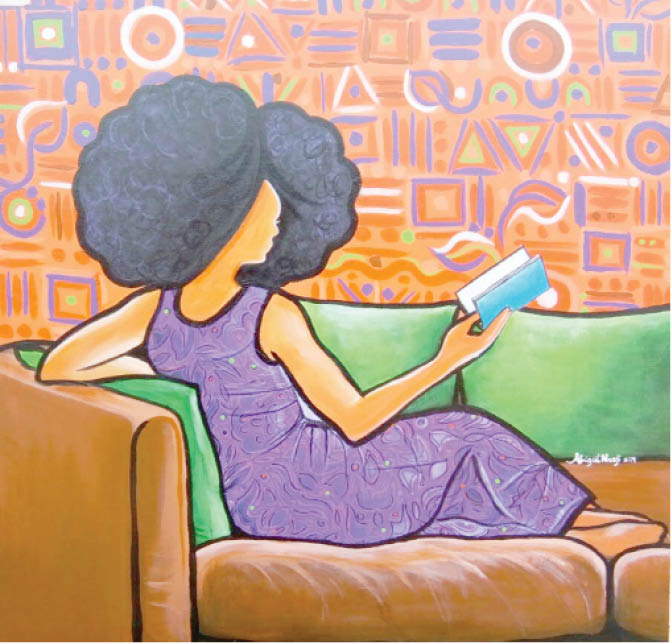The moment the World Health Organisation identified Coronavirus as a pandemic, the world began to pay more attention and take drastic measures to protect citizens of their various countries. We all doubled down when the fatalities as a result of the virus in Italy overtook that of China. At over 7,000 deaths this week, we all must now pay extra attention to a virus with no known cure while the process of vaccine production is ongoing all over the world. The earliest clinical trials are expected to be ready in several months forward and it might take a year to have a vaccine. Frightening news everywhere.
Schools are closing in Nigeria, borders are being shut across the globe and countries are running out of hospital beds, medical supplies and space for graveyards. It is so scary, but we must stay alert. Medical Doctors and Nurses in Iran are dying from being infected and the embargoes on the country mean that Medical Personnel are at high risk and can only be protected by cellophane and other such rudimentary items. Our lexicon is changing, we are at the level of social distancing, self-isolation and other such related languages. As Africans who hug and shake so often in the day and as a community led people, we are having to unlearn and relearn social skills for such a time as this. To enable you make sense of some of these issues and get some education about the virus, I have lined up a certain number of books to assist you at this time.
1. Getting some information on the Coronavirus even if you are not a medical personnel can help reduce anxiety and steady you a little bit while making you confident. With the number of Coronavirus case rising in Nigeria, it’s time to get some education. Medical Microbiology, 4th Edition Chapter 60 titled Coronaviruses is a good place to start. Written by David A.J Tyrrell and Stephen H. Myin it pretty much captures some vital information for the reader. There are of course several medical jargons in the write up as expected but it gives even a layman some pointers. Here is what I gleaned. That colds caused by coronaviruses cannot be easily distinguished from common colds in any one individual. That the virus causes cell damage and inflammation. That it is transmitted by airborne droplets of nasal mucus. That the test on organ structures and human volunteers shows that the virus is “extremely fastidious” and difficult to isolate. This is why we must all be on red alert and not treat this virus casually. There is so much about it that we don’t even yet know. Please stay safe and do as our health personnel and the government have instructed.
2. Because we are now invited to self-isolate, it brings its own challenges including loneliness and void. I mean being inside a house for fourteen days is a lot for an active human mind to take so books seem to be the answer especially if you live alone. Books that can inspire include those where the main characters stand alone. One such book is “My Morningless Mornings” by Stefany Anne Golberg. This is a biographical book by the author for a period when she rejected human attachment today and decided to live her life in the night and see what darkness brings while she is awake. She tells the story of her daytime solation and how night brought her interesting perspectives including meditation on psychology, death, art and what it meant to be awake. An incredible book on introspection, fully cerebral and extremely well written.
3. It is extremely hard to do self-Isolation or any form of isolation for that matter. What about staying together with a family you hardly spent time with because everyone went to work and all of a sudden with Coronavirus, you are having to deal with all these people you either saw briefly in the morning or late at night. Now you are in each other’s space. Tough but doable. In other developments, self-isolation, whether imposed or chosen can have some psychological effects. And all of these is already causing one of the world’s tennis superstars Serena Williams some measure of anxiety. Perspectives on Psychological Science Volume 10 No.2 0f 2015 shows that “loneliness and social isolation are twice as harmful to physical and mental health as obesity” The study was carried out and co-shared by Doctor Julian Holt, Professor of Psychology and Neuroscience. Keep your mind alert, stay in communication by phone, ensure you are well stock up for food and home requirements. Don’t panic, don’t over process information overload. Stay active even if you are in self isolation.
4. Hygiene and Sanitation, a popular manual to hygiene published by Springer Berlin is a good resource for these times. It contains chapters like Man in his relation to society, Dangers to health from external influences etcetera. But we have been told a lot of these things since we were children. WASH YOUR HANDS, VENTILATE YOUR ROOM, DO NOT COUGH ON PEOPLE OR SNEEZE WITHOUT COVERING YOUR NOSE. We know them but we ignore them anyway. Now we must observe them harder and teach our children. Being careless is not an option or being non-pluses. Humanity must now take care of humanity one person at a time.
5. Our Faith books. The Bible, The Qur’an etcetera. This is because now more than ever before we need to pray and meditate. Really where is the world going and what does all this mean? Self-Isolation helps us to rethink our lives and get a handle. It allows us to be quiet in the middle of a noisy world and thus gives us a second chance to be a better version of ourselves. We continue to pray. Stay safe.

 Join Daily Trust WhatsApp Community For Quick Access To News and Happenings Around You.
Join Daily Trust WhatsApp Community For Quick Access To News and Happenings Around You.


